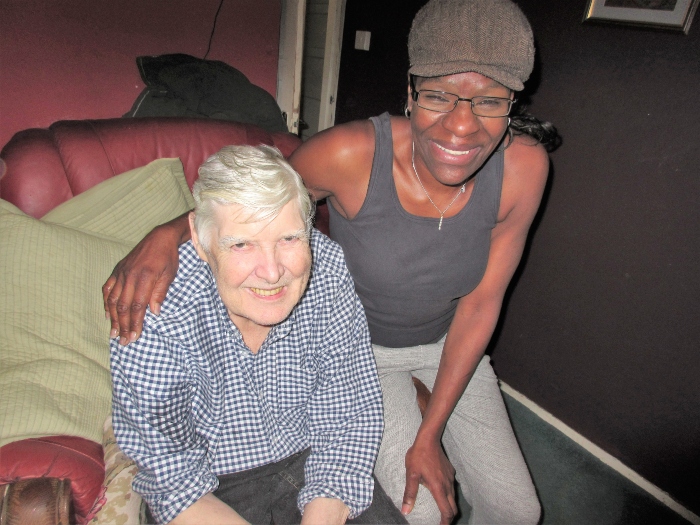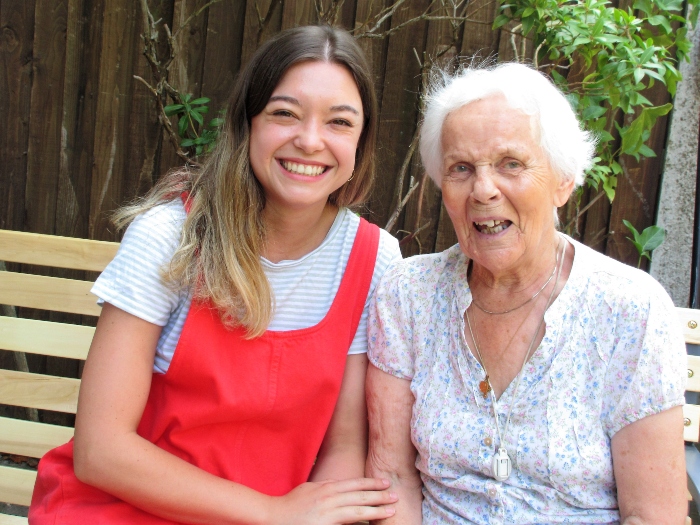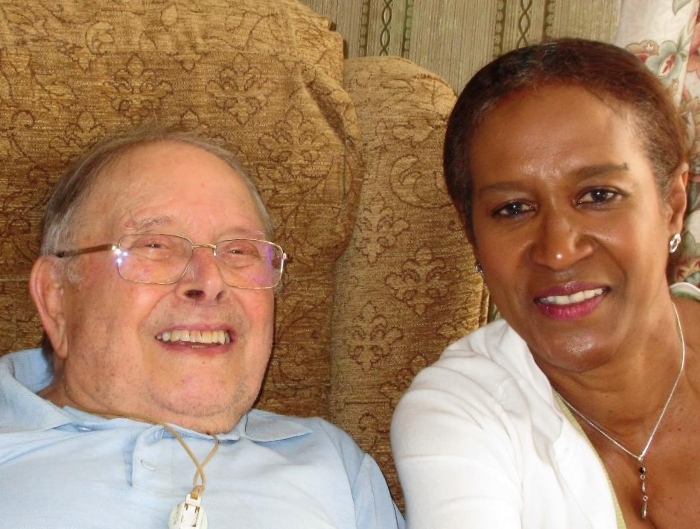Linking lives across the UK
In December 1998, volunteers from Woodley Baptist Church in Berkshire began visiting three older ladies who had little contact with other local people, limited mobility and were likely to be on their own for much of the Christmas period. Since then, many hundreds of similar older men and women across the UK have benefited from regular visits, and started to engage once again in community life.
Jeremy Sharpe tells the story of Linking Lives UK, the way in which a small community project has developed into an initiative with 30 projects ranging from Aberdeen in the north to Guernsey in the south……..

The beginnings: support for isolated older people
It was during 1998 that a community survey was carried out to establish a clear idea of issues and priorities in the immediate neighbourhood of Woodley Baptist Church. A relatively affluent community on the face of it, Woodley is made up of mainly owner-occupied housing, with good local amenities and easy access to nearby countryside and good transport links to London. The main priorities from the survey related to the need for support for young families; bereavement counselling for those recently bereaved; and support for isolated older people.
Following discussions with local social workers and GPs, three older ladies were identified as being particularly isolated and in need of regular interaction. Three female volunteers from the church were then recruited to visit each of them once a week for around one hour. It quickly became clear that even this relatively small amount of contact and social interaction often made a huge difference to the mood, confidence and outlook of those being visited.
The project grows across the Woodley area - and wider borough
During the following nine years, the project – which had become known as Link Visiting Scheme – continued to visit isolated older people in the Woodley area and gradually developed professional processes, documents and publicity whilst retaining a friendly and informal approach with all involved. The average number of people receiving visits at this time was around 20, and some of these began to attend various community events and activities including some at the church itself.

It then became clear that the model could be expanded across the local authority area of Wokingham Borough and so a meeting of church leaders and local councillors was held to discuss this vision. As a result, 20 local churches agreed to form a network to enable this to take place, and the local authority subsequently provided funding to kick-start the project across the borough.
This enabled a coordinator to be recruited on a part-time basis, and within the following year 40 people were being visited. By the end of 2008, this had risen to around 80 people, with a similar number of volunteers. The project registered as an independent charity in 2010 and now visits around 160 people in the local area. During this time, the scope of the work has developed in many ways and there are a wide variety of social events and activities held on a regular basis including bowls clubs, singing groups, computer courses, pub lunches, reading groups, quizzes and parties!
New projects nationwide
Two years later, the possibility of replicating the model on a national level began to be explored. A partnership was developed with Cinnamon Network (which supports Christian social action projects with a vision to replicate through local churches), and in 2013 the first new project was launched in a rural part of Berkshire, near Reading, followed by others in urban and rural parts of the country.
In 2016, a new charity called Linking Lives UK was established with the specific focus of establishing these befriending projects across the UK (Link Visiting Scheme continues to operate successfully on a local level). Churches and Christian organisations with an interest in setting up a befriending scheme in their community through Linking Lives UK receive all the necessary training, advice, template documents and ongoing support.
Many lives across the country are now being touched through what started as a small church-based community project. The story of John and Matt from London outlines one such story and also underlines the mutual benefit that exists for volunteers. There are many other inspiring stories describing ways in which people have clearly met with God in a deep way.

John and Matt's story
John is 86 and had a career in engineering. He has two sons whom he sees infrequently because they do not live close by. His wife died but he now has a partner who cares for him, but he misses male camaraderie, especially from his bowling club. He is conscious of his own loss of independence because of macular degeneration and muscle weakness in lower limbs. He enjoys jazz music.
Matt is a medical researcher who is married but whose father lives in Portugal. Matt has no close access to the older generation and John has taken on that role and also a shared love of music and sport. Matt has been visiting John for fourteen months and a close bond has developed between them. John refers to it as a ‘confessional’!
They exchange close problems and shared interests. Matt brings today's workplace into John’s house and keeps him updated. John recalls his time as an engineer travelling across the world in the days of early air travel, and the many resulting stories. Matt’s wife is expecting their first child shortly and hopes John will become the surrogate grandfather. They are both looking forward to this event and Matt bringing the new child to John’s house which will, no doubt, bring on reminiscences of John’s days as a young father. John has said that Matt’s visits have made a huge difference to his life and outlook and mood and so looks forward to him visiting.
'God has guided us as a charity'
As a charity, we have a sense – looking back – that God has guided us on our journey ‘for such a time as this’. The issue of loneliness and isolation has never been such a major concern in this country and the UK is often cited as the ‘loneliness capital of Europe’. During June, the government launched a year-long campaign which will aim to tackle the stigma of loneliness, and in November a review will be published of the loneliness strategy which was launched last year.
It is clear that churches, Christian charities and individual Christians have been at the forefront of this issue for decades by coming alongside those on the margins of society, and we believe that God is calling us all to consider ways in which we can continue to demonstrate His love to those who, through no fault of their own, find themselves isolated and with few friends in the world.
Jeremy Sharpe began this journey as the Community Development Worker at Woodley Baptist Church in 1998, and is the National Director of Linking Lives UK. He also chairs a coalition of national Christian charities working together to raise the profile of these issues among churches.
Linking Lives UK has recently produced a short promotional film outlining their work and this is available at www.linkinglives.uk
Do you have a view? Share your thoughts via our letters' page.
Baptist Times, 28/08/2019